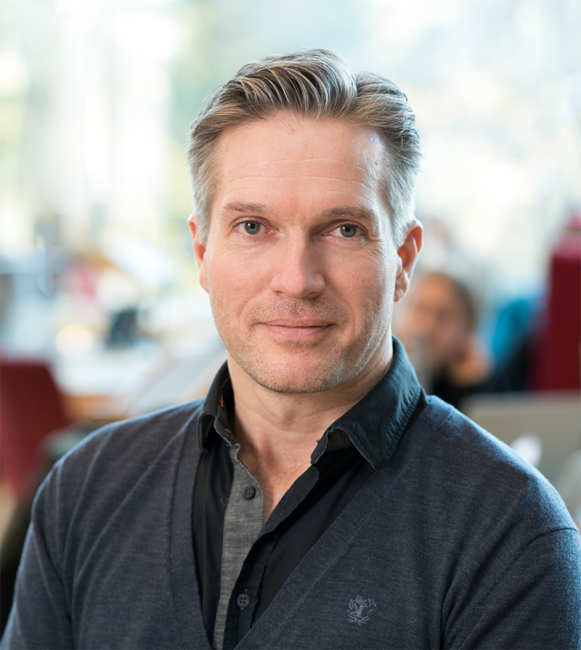New centre focuses on online media and location-based services
2022-01-28Many people navigate modern technology every day. But how does it affect us and how does this differ between different geographical and social groups? Centre for Geomedia Studies at Karlstad University conducts research on this subject.
- Starting this spring, we will create a research infrastructure through focused interviews with people from various geographical and social areas, says André Jansson, Professor of Media and Communication Studies, as well as Director of the newly created Centre for Geomedia Studies. Through these, we want to research how they experience and use online media, not least different location-based services, in their daily lives. The new part is that we will collect data from these groups every other year and follow them over a longer period of time.
In this new centre, where the infrastructure will be an important resource, André Jansson can see an increased clarity in the work with geomedia.
- Geomedia is not only for colleagues within media and communication studies or human geography. We want to open up in order to attract interest from other parts of Karlstad University, as well as other higher education institutions. I consider collaborations with several other disciplines interesting - there are connections in many directions.
According to André Jansson, the discipline of geomedia is interesting in several respects. The basis is in the technology we all use, both professionally and in private, and the fact that much of this technology both tracks us and guides us to different locations.
- This completely permeates our daily lives. It has become an indispensable and unavoidable situation, where many things are woven together in our day-to-day lives, which makes it possible to apply to a plethora or areas. The ongoing pandemic has been extremely rough to deal with, but at the same time it has accentuated and even further illustrated people’s need of technology.
A concrete example is how we prepare ourselves for travelling these days. Before modern technology made its entrance, we contacted a travel agency to book a trip. We went on the trip, perhaps we sent a few postcards and later also made sure to develop our own photographs to show our friends and loved ones afterwards. These days, the procedure before, during and after a trip is completely different.
- These days, it is an ongoing process where you, by means of integrated technologies, can start a trip at any time, says André Jansson. You can search for destinations, hotels and activities, as well as download routes and plan. You navigate using your smartphone and share your experiences in real time. It is a deconstruction of the clear phases we had before. Both in terms of time and space.
International attention
Geomedia has held four very successful conferences. Several international contacts have been made, where the close collaboration between Karlstad University and the German university in Siegen is especially noteworthy. The conferences have also created other spin-off effects for Karlstad University.
- Our research has been featured in several themed issues of journals, conference panels, study visits and through networking and workshops. That we can not only keep the Geomedia conference alive, but also vitalise it despite the current situation, I think is a clear example of how we have created a field that many are interested in, and I look forward to more collaborations in the future.
The Geomedia research group was established in 2017, and from 2022 it is called Centre for Geomedia Studies. After the creation of this centre, Geomedia is located at the Faculty of Arts and Social Sciences at Karlstad University. New coordinator is Cornelia Brantner.


